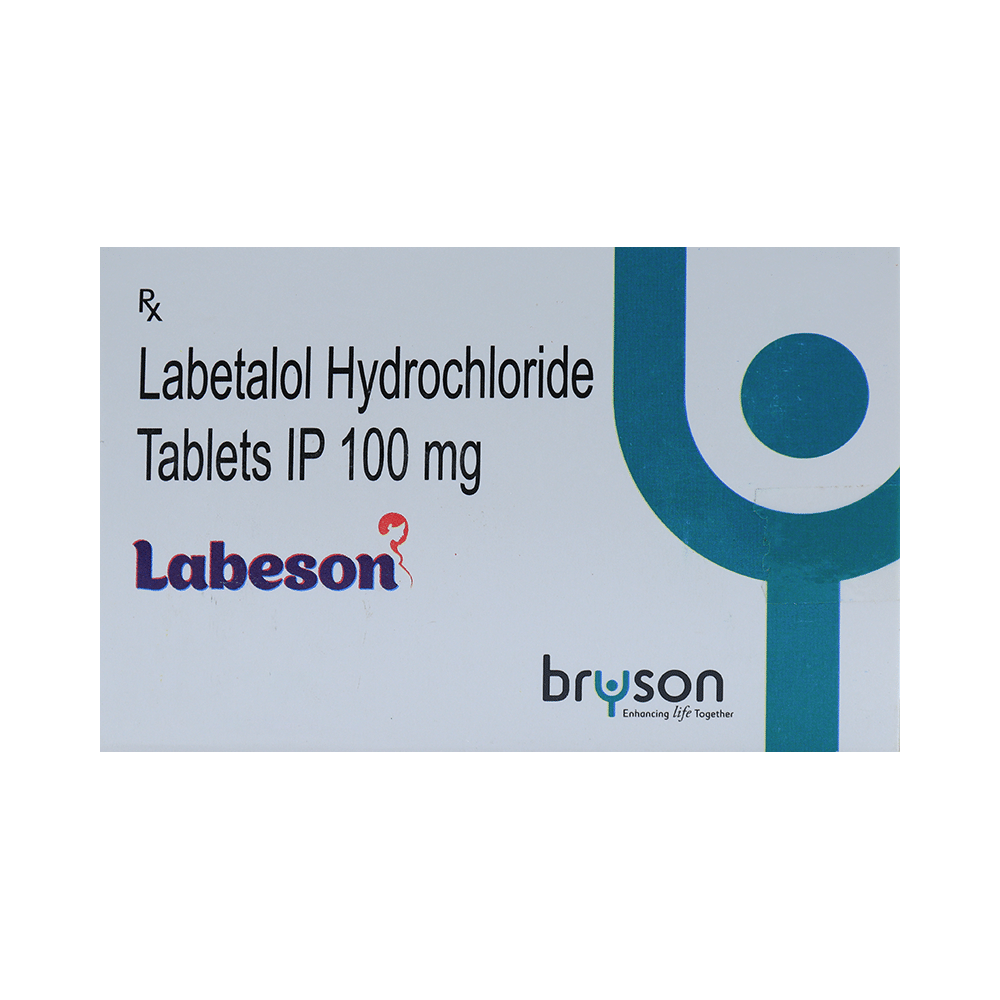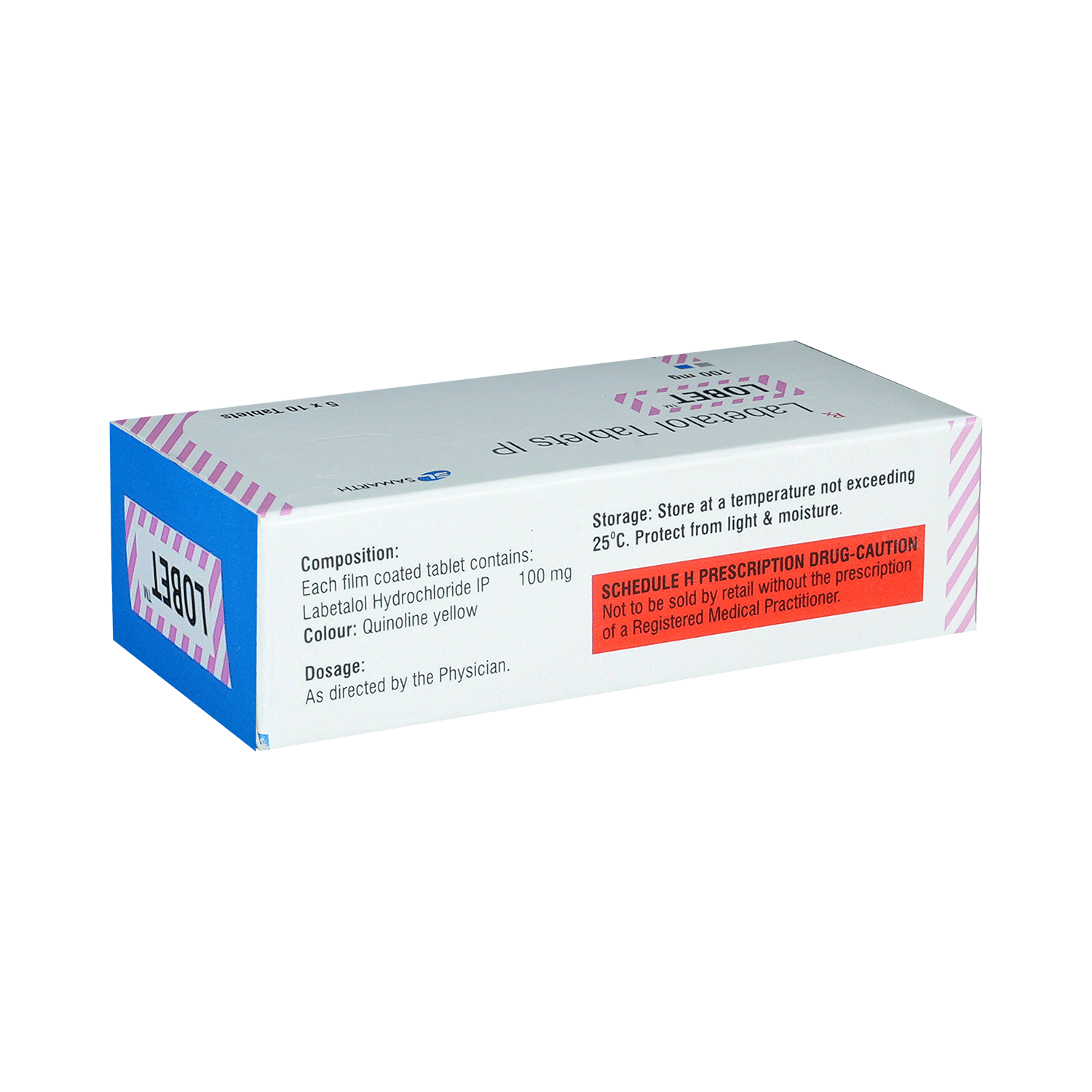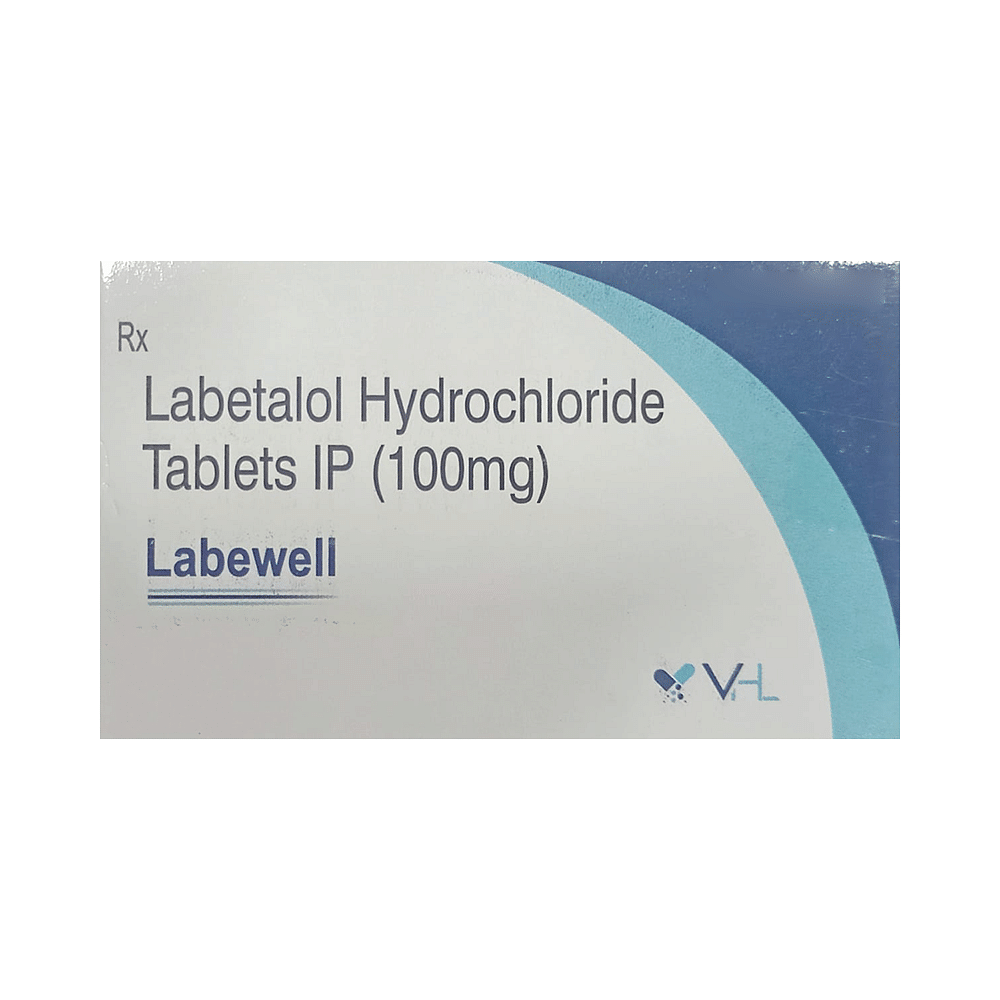



Labeson Tablet
Manufacturer
Bryson Pharmaceutical Llp
Salt Composition
Labetalol (100mg)
Key Information
Short Description
Labeson Tablet is a medicine used for treating high blood pressure (hypertension) and heart-related chest pain (angina).
Dosage Form
Tablet
Introduction
Labeson Tablet is a medicine used for treating high blood pressure (hypertension) and heart-related chest pain (angina). It is also effective for treating high blood pressure in pregnancy. It lowers blood pressure and thus helps in preventing future stroke and heart attack.
Directions for Use
Take this medicine in the dose and duration as advised by your doctor. Swallow it as a whole. Do not chew, crush or break it. Labeson Tablet is to be taken with food.
How it works
Labeson Tablet is an alpha and beta blocker. It works by slowing down the heart rate and relaxing blood vessels which makes the heart more efficient at pumping blood around the body.
Quick Tips
It should be taken with food. Check your blood pressure 1 week after starting Labeson Tablet and inform your doctor if it has not improved. Labeson Tablet may cause dizziness or sleepiness. Do not drive or do anything requiring concentration until you know how it affects you. It may cause you to feel lightheaded or weak especially when you stand up (orthostatic hypotension). Rise slowly if you have been sitting or lying down. It is best to avoid drinking alcohol while taking Labeson Tablet as it may make the side effects worse. Do not stop taking Labeson Tablet suddenly as it can cause your blood pressure to rise suddenly thereby increasing the risk of heart attack and stroke.
Related Medicines

Labebet 100 Tablet

Lobet Tablet

Beta-L Tablet

Cubetol 100mg Tablet

Labimax 100mg Tablet

Pih 100mg Tablet

LABONIK 100mg Tablet

Evabet 100mg Tablet

Tiplab 100mg Tablet

Labewell Tablet
Frequently asked questions
Is Labesol safe?
Labesol is generally considered a safe medication when taken as directed by your doctor. Common side effects that occur with use of Labesol are usually mild and temporary, resolving on their own within the first few weeks of treatment.
Why is Labesol used in pregnancy?
Managing high blood pressure during pregnancy is crucial to prevent potential complications such as increased risk of birth defects, stillbirth, reduced fetal growth, and premature birth. For some pregnant women with hypertension, treatment with Labesol might be the most suitable option, but it's essential to consult your doctor for personalized advice.
Does Labesol cause itching?
Itchy skin, rashes, or a tingling sensation on the scalp are possible side effects of taking Labesol. If you experience worsening itchiness or a rash that persists for more than a week, discuss this with your doctor.
Is it safe to take Labesol if I have diabetes?
People with diabetes should regularly monitor their blood sugar levels while using Labesol. The medication may make it harder to recognize the warning signs of low blood sugar, such as shakiness and a racing heartbeat. If you notice any changes in your blood sugar levels while taking Labesol, consult your doctor.
Does Labesol affect heart rate?
Labesol helps slow down your heart rate and improve its efficiency in pumping blood throughout the body. Your doctor may monitor your blood pressure and pulse regularly during treatment to assess how you respond to the medication.
What can happen if I stop taking Labesol abruptly?
Do not suddenly stop taking Labesol without consulting your doctor first. Stopping this medication too quickly can lead to serious heart problems, such as angina or even a heart attack. If you need to discontinue treatment, your doctor will gradually taper off the dosage over 1-2 weeks.
Will I need to stop taking Labesol before surgery?
Your doctor might advise you to temporarily stop taking Labesol for at least 24 hours before undergoing surgery, as it can lower blood pressure too much when combined with certain anesthetics. If you're scheduled for a general anesthetic or major operation, inform your doctor about your use of Labesol.
What happens if I take more than the recommended dose of Labesol?
Taking more than the prescribed amount of Labesol can cause a drop in blood pressure and heart rate, difficulty breathing, or low blood sugar leading to sweating or confusion. If you've taken too many tablets, contact your doctor immediately or seek help at the nearest hospital emergency department.
How long does Labesol take to work?
For patients taking Labesol for high blood pressure, the medication may lower blood pressure within 1-3 hours of administration. Although you might not feel any immediate effects, it's essential to continue taking Labesol as directed. When treating angina, it can take a few days for the medicine to alleviate symptoms.


